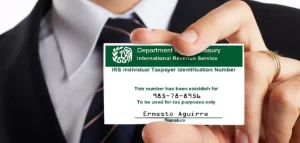In domestic business, we’re used to communicating via WeChat — sending messages, making voice calls, or even solving problems with a screenshot or voice message anytime and anywhere. It’s convenient and efficient. Financial reconciliations might be stored in a folder somewhere, and contracts are often exchanged in PDFs or through “oral confirmation.” This way of doing business works well in familiar circles and local markets because it’s fast and flexible.
But once you step into the world of cross-border e-commerce, especially after registering a company in the U.S., many things are no longer just a matter of “habits,” but of standards, systems, and compliance. You’ll be dealing with English emails, overseas banks, Stripe settlements, correspondence from U.S. state governments, and those dreaded IRS tax forms. Tax issues, especially tax compliance, will become crucial to whether you can operate long-term, make continuous profits, and receive payments legally.
Why is Tax Compliance So Important?
If you’ve just registered a company in the U.S., you might be most concerned about quickly getting your products listed, running ads, and receiving payments. As for “tax filing,” you may have temporarily put it aside, thinking, “I’ll deal with it once I start making money.”
But sorry, this isn’t something that only shows up after you make money — it actually starts the moment you register your company.
The U.S. tax system is notoriously complex. It’s not just about federal taxes — states, and even some cities, can impose their own taxes, and they’ll come after you individually. What’s even more “terrifying” is that the U.S. tax authorities are known worldwide for being meticulous. The IRS is like an insomniac “data machine” that, once you register your company, will eventually catch you if you haven’t filed taxes or completed the necessary paperwork — and then…
The fines start rolling in.
Real Case
Let’s take a look at the case of a cross-border seller from Shenzhen — let’s call him Mr. A. A few years ago, he registered an LLC in the U.S. to sell pet products on an independent website. At first, his orders were good, the business was running smoothly, and customers were satisfied, so he thought he had “opened up the market.”
But he overlooked one crucial thing: tax filing.
U.S. tax requirements state that even if you earn zero dollars in a year, you must file a tax return. If you’re a foreigner with a U.S. company, the IRS will require you to fill out an additional form called Form 5472 — even if you’re the sole shareholder and have no employees, you’re still required to file.
So, what happened? The very next year, the IRS sent a penalty notice — a fine of $490.
Mr. A was left confused: the company had just been established for a year, and he hadn’t even started talking about making a profit — so why was he fined?
What’s worse is that if he ignored this, the fine would continue to grow every year and could trigger account freezes, lower credit ratings for his business, and even affect his ability to open U.S. bank accounts, apply for loans, or get customs clearance.
In other words, not filing taxes is not just about not paying money — it slowly erodes your entire overseas business system.
Types of U.S. Companies and Their Tax Filing Requirements
When people first register a company in the U.S., they often care only about which type of company is cheaper to register, which is easier to open a bank account for, and whether they can use Stripe or PayPal. Indeed, these are essential needs during the initial stage, but the deeper issue is — the type of company you register directly determines your future tax filing obligations and potential risks.
Unlike China, where one type of company dominates, the U.S. has a variety of company structures. Different structures have vast differences in how taxes are handled, which forms to file, whether there is double taxation, and whether foreigners can hold shares. Below, we will explain the details of these common company types.
LLC (Limited Liability Company)

LLC is the most popular type of company for cross-border sellers, especially for small and medium-sized business owners operating on e-commerce platforms like Shopify, Amazon, and TikTok Shop. Over half of cross-border sellers opt for registering an LLC due to its low registration costs, flexible management, and diverse tax treatment.
However, the problem arises when many people register an LLC but are unclear about which specific type they fall into, resulting in missed tax filings and unpaid taxes — setting the stage for compliance issues.
Single-Member LLC
This is the most common type, especially for Chinese sellers who are the sole shareholder with no partners.
For tax purposes, the IRS categorizes this as a “Disregarded Entity,” meaning that the LLC is not considered a separate taxpayer. Its income and expenses are passed through directly to you as the individual. However, if you are a foreigner, the situation changes.
You still need to file a Form 1120 (corporate tax form) under the company’s name and attach a Form 5472 (a form required for foreign-owned entities). Even if your business hasn’t generated income or received any funds, you must still file these forms as a “zero filing.”
If you fail to file? The IRS won’t call you or message you on WeChat — they will simply send you a fine notice: starting at $25,000. Many people mistakenly think that not having any business means they won’t face penalties, but by the time they receive the IRS notice, it’s often too late.
Tips:
Form 5472 needs to disclose any “transactions” with yourself, for example, transferring $1,000 from your personal bank account to your LLC for startup capital. This counts as a transaction.
The form should be submitted together with Form 1120 — it can’t be submitted separately.
Multi-Member LLC
If you’re partnering with others to register an LLC, for example, you and a domestic friend each holding 50%, the IRS will classify your LLC as a Partnership.
In this case, your company will need to file Form 1065 (partnership tax form) and generate a Schedule K-1 for each shareholder. This form will specify how each member should report their taxes.
If there’s a foreign member in the LLC — for example, if you’re a Chinese passport holder — there are additional withholding tax issues. According to IRS section 1446, the company needs to withhold a portion of taxes and submit Form 8804/8805.
✅ Tips:
A partnership itself doesn’t pay taxes; each member must report their share of the income.
Partnerships with foreign members have more complex tax handling; it’s recommended to hire a professional accountant.
C-Corporation (C-Corp)

If you’re planning to raise capital, expand your brand internationally, collaborate with U.S. local partners, or develop your company long-term, a C-Corp is the most formal, standard, and “American” company type. Many large companies like Google, Apple, and Amazon’s parent company are C-Corps.
Tax Requirements:
A C-Corp is a separate taxpayer. The company itself pays taxes, and when you, as a shareholder, take money from the company (e.g., dividends), you’ll have to pay taxes again — this is known as double taxation.
The company must file Form 1120 (corporate income tax return) annually.
The federal tax rate is fixed at 21%, with additional state taxes (e.g., California 8.84%, New York 6.5%).
If you’re a foreigner and receive dividends from the company (for example, taking money from the profits at the end of the year), you’ll need to:
Withhold 30% tax on dividends.
The good news is that the U.S. has a tax treaty with China, allowing you to apply for a reduced dividend tax rate (usually 10%).
If a foreigner holds more than 25% of the shares, the company must submit Form 5472 to disclose shareholder information and transaction records.
✅ Tips:
C-Corp is suitable for long-term development, external funding, and brand building.
The costs are higher, and there are more management processes, such as holding annual board meetings and recording minutes.
If you’re a foreign individual holding shares in a C-Corp, make sure to consider future remittance and tax costs.
S-Corporation (S-Corp)

S-Corp is a tax-saving structure commonly used by Americans. It allows company profits to “pass through” directly to the shareholders’ personal income, where only personal taxes are applied, thus avoiding double taxation.
However! The key point is that foreigners cannot be shareholders in an S-Corp.
So, if you’re Chinese or a foreign national, S-Corp has no relevance to you — you can’t register or be a shareholder in this type of company.
✅ Tips:
If you’re a U.S. green card holder or a U.S. citizen, you can opt for S-Corp tax treatment.
Otherwise, it’s best to avoid S-Corp.
What is ITIN, and Why Do You Need It?

An ITIN is a 9-digit number that starts with 9, formatted as 9XX-XX-XXXX. It is an identity number for “non-residents” in the U.S. tax system, similar to the Social Security Number (SSN) for U.S. citizens. Foreigners are also required to have a similar “identity” to fulfill tax obligations.
For example, if you are a Chinese national who has registered an LLC in the U.S., and you need to file Form 1120 and Form 5472 with the IRS, they will require a tax number. Without an ITIN, your tax filings will be incomplete, and the system will reject them, even issuing penalties starting at $25,000.
Additionally, when handling company profit dividends, if you do not have an ITIN, the IRS will automatically withhold a 30% withholding tax. However, if you have an ITIN and make proper use of the U.S.-China tax treaty, the tax rate can be reduced to 10%. That 20% difference could result in a $20,000 savings if you withdraw $100,000 in profits for the year—definitely worth considering!
How Foreigners Can Obtain a U.S. Taxpayer Identification Number (ITIN)
For cross-border sellers, especially those who have set up a company in the U.S., tax issues are not a question of “if,” but “when” they need to be dealt with. One of the most common obstacles is being asked, “Do you have an ITIN?”
An ITIN (Individual Taxpayer Identification Number) is a tax identification number issued by the U.S. Internal Revenue Service (IRS) specifically for non-U.S. citizens. Its purpose is not to allow you to work legally in the U.S., but rather to enable you to legally file taxes, receive income under that tax number, and participate in tax-related activities, such as filing corporate taxes, applying for tax treaty benefits, opening bank accounts, or even linking your tax number when setting up accounts with Stripe or PayPal.
Imagine this: You have set up an LLC in the U.S., and Stripe asks you to fill out a W-8 form and provide an ITIN to withdraw funds. If you haven’t prepared one, you may find your account frozen or subject to a 30% tax. Therefore, ITIN is a critical element that cannot be ignored.
How to Apply for an ITIN? Is the Process Complicated?
Applying for an ITIN is not too complicated, but it is somewhat “tedious.” First, you need to fill out Form W-7, which is the official IRS application for an ITIN. All foreigners must use this form to explain why they need a tax number.
The form requires basic information, such as your name, nationality, date of birth, and address, along with the reason for your application. The most common reason for cross-border e-commerce sellers is: “I am a non-resident foreigner who needs to apply for an ITIN to benefit from tax treaties” or “I am the beneficial owner of a U.S. company and need to file company taxes.”
After filling out Form W-7, you must provide valid identification documents—usually a passport. Many people mistakenly think a copy is sufficient, but the IRS requires the original document or a certified copy from an authorized agency (e.g., a U.S. embassy abroad or an IRS-approved Certified Acceptance Agent, CAA). If you submit the original, be prepared for your passport to be out of your hands for several weeks or even months, so many opt for the authorized agent route, which is faster and safer, though it does involve a service fee.
In addition to the form and documents, you will need to include tax-related documentation. This could be a draft tax form (such as 1040-NR or 1120), or a letter from your CPA or attorney explaining why you need the number. If you are the controlling owner of the LLC, you can also provide the company’s EIN approval letter, articles of incorporation, or bank account opening documents as supporting proof.
Then, you mail these documents to the IRS ITIN processing center in Austin, Texas. If you’re using expedited shipping, such as DHL or UPS, make sure to use the correct address. Be careful not to send the documents to the wrong address, as the IRS may refuse to process your application and won’t notify you if the documents are lost.
How Long Does It Take to Apply for an ITIN? Is There a Way to Expedite the Process?
According to the IRS, the processing time for an ITIN application is typically 8-12 weeks. However, in practice, especially during tax season (January to April) or the year-end peak, many applications can take 3-4 months or longer. If your materials are incomplete, the IRS will send a request for additional documents, which will further delay the process.
Therefore, it is strongly recommended to prepare in advance. Don’t wait until your business is up and running and tax filing is near to apply for an ITIN—that’s when you’ll get stuck in the vicious circle of “can’t file taxes without an ITIN, and can’t get an ITIN without filing taxes.”
If you are in urgent need, for example, if your PayPal or Stripe accounts are blocked and you need funds, it is recommended to work with a Certified Acceptance Agent (CAA). CAAs are IRS-approved and can verify your passport and submit your application materials on your behalf, while tracking the progress in real-time. Though there is a service fee, it’s much cheaper than having your tax withheld or your business interrupted.
Conclusion
To be honest, figuring out all the tax forms, penalties, ITINs, EINs, and other U.S. compliance requirements feels like decoding ancient scrolls. But make no mistake—your countdown starts the moment you register your company.
Whether you’re running a solo LLC or gearing up to raise funds with a C-Corp, even a small slip-up in reporting can lead to fines of tens or even hundreds of thousands of dollars.
If you’re like me and prefer to focus on product and marketing—without getting bogged down by logistics and compliance—you need to check out DropSure, the all-in-one dropshipping platform that makes life easier.
-
Effortless integration: One-click setup with Shopify, Amazon, eBay. Orders sync automatically across platforms.
-
U.S. warehouse shipping: Local fulfillment with 3–7 day delivery, boosting customer satisfaction.
-
Compliance support: Regular reminders for U.S. tax filings, clear guides for ITIN/EIN applications, and access to professional accountants when needed.
-
Zero inventory pressure: No need for your own warehouse, cutting down on cash flow risks and storage costs.
Several veteran cross-border sellers I know have been using DropSure—they’ve doubled their monthly orders and practically eliminated tax risk.
If you’re tired of getting buried in paperwork and shipping chaos, I seriously recommend you give DropSure a try. It’s the smart way to grow your business with peace of mind.

 16 min read
16 min read








